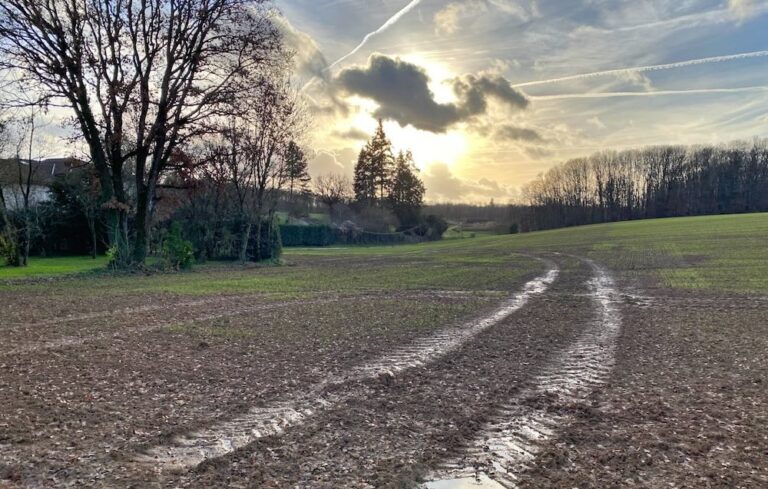Sexta-Feira da Primeira Semana da Quaresma
Anna Karenina se encontra pela primeira vez com o Conde Vronsky na estação de trem onde, ao final da novela, em desespero e com vergonha dos acontecimentos após o primeiro encontro, ela irá tirar a sua própria vida ao jogar-se debaixo de um trem, Naquele primeiro momento do seu relacionamento, eles sentem de maneira recíproca uma atração imensa que nenhum deles será capaz de reprimir, ainda que inicialmente o seu condicionamento social os permita autocontrole. Tolstoy, o escritor que criou os personagens, também dá a Anna um pressentimento perturbador de uma tragédia iminente, porém a empolgação e a doçura da atração entre eles naturalmente afasta este pressentimento.
Mais tarde, quando se encontram em um baile, a força plena da paixão deles é libertada e, despreocupados com relação à opinião alheia, eles descobrem e se comunicam na única linguagem do amor que os amantes compartilham. A linguagem do amor tem um espectro ilimitado de dialetos, sotaques e vocabulários, não apenas na forma de Eros, como Anna e Vronsky descobrem, mas também na forma de amizade. Nós conhecemos muitas pessoas durante a vida, alguns relacionamentos passageiros e outros de longa duração. Cada um é único, mas podemos gostar ou lembrar mais de uns do que de outros. A linguagem do amor compartilhado não é única entre todos. Entre futuros amigos, no entanto, pode também haver esta ignição de conexão instantânea de simpatia e atração que leva a uma única linguagem compartilhada do amor da amizade verdadeira. Um jornalista me disse uma vez como ele conheceu um policial que ele iria entrevistar e, desde os primeiros momentos da conversa, ele reconheceu na inteligência e no humor extrovertido algo em comum, o primeiro sinal de uma única linguagem de amor compartilhada – e então tornaram-se amigos para a vida.
A esperança a qual eu me referi ontem requer que reconheçamos a linguagem única do amor de Deus: amigo e amante, mas alguém com quem nunca nos encontramos pela primeira vez, pois nunca estivemos sem a companhia um do outro, mesmo quando não O reconhecemos. Gregório de Nazianzo no quarto século descreve o despertar místico para esta relação quando nos tornamos conscientes da linguagem do amor de Deus expressa na beleza ao redor de nós: “o mundo visível a nossa volta”, a beleza do céu, o sol em sua trajetória, o círculo da lua, o incontável número de estrelas com a harmonia e a ordem própria delas como a música de uma harpa. Quem abençoou você com a chuva, com a arte de cultivar plantas e animais, com diferentes tipos de comida, com as artes, com casas, com leis, com uma vida de humanidade e cultura, com amizade e a familiaridade espontânea com afinidade?
Em uma era de medo e pessimismo, esta intoxicação com a beleza do mundo e da humanidade parece inacessível. O século 4, porém, não foi uma era dourada – tivemos o fim da segurança de um império, as invasões bárbaras, o grande divórcio entre o Cristianismo ocidental e oriental, o casamento corrompido entre estado e igreja e um desastre ambiental – um dos terremotos mais devastadores da história. Como escreveu Jane Austen em uma carta para sua irmã, nós não amamos menos um lugar só porque sofremos lá. Etty Hillesum, correndo entre grupos de Judeus aguardando transporte, um dia parou ao ver uma flor durante a primavera crescendo na fenda de um pavimento.
Gregório também descobriu uma característica única desta linguagem de amor divino que desafia a nossa forma pensar sobre o amor e que nós vamos investigar amanhã.
Texto original
Friday First Week of Lent
Anna Karenina first meets Count Vronsky at Moscow railway station where, at the end of the novel, in despair and shame at what unfolded from that first encounter she will end her life by throwing herself under a train. In that first moment of their relationship they feel reciprocally the overwhelming attraction that neither will be able to repress but at first their social conditioning allows them self-control. Tolstoy, their creator, also gives Anna a disturbing presentiment of a coming tragedy but the excitement and sweetness of their attraction naturally pushes it away. Later, when they meet at a ball the full force of their passion is released and unconcerned by what others are observing they discover and speak the unique language of love that lovers share.
The language of love has an unlimited spectrum of dialects, accents and vocabulary, not only in the form of Eros, as Anna and Vronsky discover theirs but also in friendship. We make many acquaintances in life, fleeting or longer-term. Each is unique but we may come to like or remember some more than others. The language of love shared is not unique in this way among everyone. Among future friends, however, there can also be this spark of instantaneous connection of sympathy and attraction which leads to a unique shared language of the love of true friendship. A journalist told me once how he met a political figure he was to interview and from the first moments of their exchange he recognised in the wit and outgoing humour something in common, the first sign of a shared unique language of love and they became friends for life.
The hope I was speaking of yesterday requires that we recognise the unique language of love of God: friend and lover but someone we never meet for the first time because we have never been outside the other’s company even if we did not recognise it. Gregory of Nazianzen in the 4th century describes the mystical awakening to this relationship when we become aware of God’s love-language of beauty everywhere around us: ‘the visible world around us’,
the beauty of the sky, the sun in its course, the circle of the moon, the countless number of stars, with the harmony and order that are theirs, like the music of a harp? Who has blessed you with rain, with the art of husbandry, with different kinds of food, with the arts, with houses, with laws, with sttes, with a life of humanity and culture, with friendship and the easy familiarity of kinship?
In an age of fear and pessimism this intoxication with the beauty of the world and humanity seems inaccessible. The 4th century, however, was not a golden age – the end of the security of an empire, the invasion of barbarians, the great divorce between eastern and western Christianity, the corrupting marriage of church and state and an environmental disaster, one of the most devastating natural earthquakes in history. As Jane Austen wrote in a letter to her sister, we don’t love a place less because we have suffered there. Etty Hillesum, running between groups of Jews awaiting transportation one day was stopped in her tracks by the sight of an early spring flower growing in a crack in the pavement.
Gregory also discovers a unique feature of this language of divine love which challenges all we think of as love and which we will look at tomorrow.






